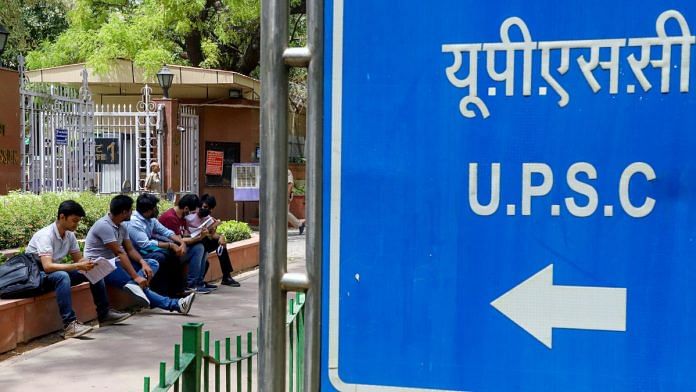The UPSC results have once again captured the attention of the entire nation. Newspapers, TV news and social media are filled with fervent discussion about the successful UPSC candidates, analysing each story to reveal a comprehensive picture of societal shifts at play. For example, highlighting the successes of women or candidates from marginalised communities shines a light on the changing face of our society.
I remember the discussions that filled my home during UPSC results season, there was deep admiration for the candidates who defied the odds and achieved the almost impossible. Their stories of victory weren’t just personal achievements, they represented hope and inspiration for countless others facing difficulties and failures. My father was one of the many who was inspired by these stories as he came from a very poor background. He passed this fascination to me. I’ve spent many days reading interviews of successful candidates in Pratiyogita Darpan.
But what I didn’t see in post-results discussions is the collective failure of society. Instead of building a society where every individual receives a support system to live a life of dignity, we have started glorifying examinations like the UPSC. We place all the responsibility on the individual to achieve dignity. But even when poor candidates pass the exam, it doesn’t uplift the community. It makes a difference to the selected individuals, yes, but not for society as a whole.
Similarly, I recall discussions about how there are very few Muslims who appear on the UPSC exam result list. The prevailing perception is that the minimal presence of Muslims in civil services is a consequence of discrimination against the community—it serves as evidence of unequal opportunities. This narrative on the ground disproportionately harms the Pasmanda community. The more they believed that they lacked opportunities to qualify in such exams or even secure jobs in the private sector, the more demotivated they were about pursuing education. This meant they remained confined to their traditional occupations and only had access to madrasa education.
Furthermore, it was argued by Ashraaf leadership that the Muslim community would face even fewer opportunities under the BJP government. According to them, all Indian governments are against Muslims, but the BJP would openly suppress the interests of the community.
Despite this perception, 51 Muslims have successfully cleared the UPSC exam this year. It challenges the narrative of discrimination against Muslims in civil services. The increasing success of Muslims in the exam every year is indeed noteworthy. Of course, this success does not imply that our system is flawless, but it does highlight that there are opportunities for every Indian citizen, regardless of their identity. It’s a reminder to not be swayed by pessimistic narratives and instead believe in oneself and actively participate in nation-building efforts.
Also Read: Women breaking barriers to enter bureaucracy. But UPSC numbers don’t tell the whole truth
Hope for women
Another significant point that must not be overlooked is the success of women. Over one-third of the successful candidates are women— 352 out of the 1016 candidates, including six among the top ten. This marks a remarkable change compared to the results of less than two decades ago when women accounted for about 20 per cent of the selected candidates.
The number of Muslim women is also noteworthy and instils hope for women within the community.
When the Pasmanda community as a whole holds a pessimistic view about participating in such exams, it becomes even more challenging for the women to dream of such achievements. This is why reading names such as Nausheen (All India Rank 9), Wardah Khan (AIR 18), Zufishan Haque (AIR 34), Fabi Rasheed (AIR 71), Arfa Usmani (AIR 111) and many more, serve as a beacon of hope for many others and challenges numerous prevailing narratives.
Amana Begam Ansari is a columnist and TV news panelist. She runs a weekly YouTube show called ‘India This Week by Amana and Khalid’. She tweets @Amana_Ansari. Views are personal.
(Edited by Theres Sudeep)




51 candidate out of 1000 selected is 5%. The population of Muslims is 16% to 18% so this does not prove there is no discrimination. The problem is that the level of candidates selected for interviews is similar. Going by few marks here and there does not make one person smarter than other. Time has come to have 50% candidate selected are women and the reduce the intake of upper caste men from Hindus, Sikhs and Muslims. This hierarchy amongst first 5000 rankers is idiotic. There is no proof the toppers of IAS have performed much better than the one who came at 1000th place.